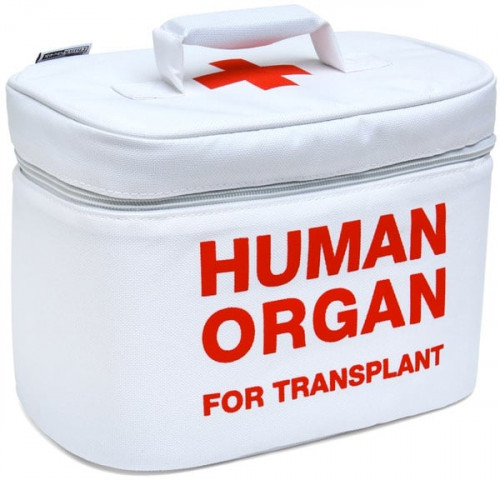Transplant programme: Mother gives daughter her kidney
Patient undergoes kidney transplant under hospital's new transplant programme.

In Pakistan, more than 15,000 new cases of chronic kidney disease are diagnosed every year. PHOTO: laughingsquid.com
A chronic kidney disease patient, 26-year-old Fatima was on dialysis for three years before coming to the AKUH seeking a better alternative.
For most patients suffering from end-stage kidney failure, a transplant is the best treatment where the damaged kidney is surgically replaced with a healthy kidney from a deceased or a living donor.
"Unfortunately, once an individual develops chronic kidney disease, it cannot be treated with conventional medical treatment and the person will either require dialysis or a transplant," said Dr Amanullah Memon, who was part of the surgical team that conducted the procedure.
Fatima, fortunately, found a kidney match in her mother, and both the mother and the daughter underwent surgery for the transplant and recovered together.
"Dialysis is not a long-term solution as patients are not able to carry on their routine life due to their dialysis schedule," added Dr Waqar Kashif, who was part of the surgical procedure's nephrology team. "Moreover, infections are also always a risk and general well-being is compromised in the process. A kidney transplant on the other hand, is considered the treatment of choice for an improved quality of life."
To evaluate a patient's suitability for a transplant, the hospital has a rigorous programme. At their renal transplant clinic, a trained team of nephrologists counsel patients who need a kidney transplant and evaluate whether they are suitable for the transplant procedure. Along with checking for genetic compatibility, both the donor and the patient's general health and well-being are also assessed. The clinic also provides a long-term, post-transplant follow-up for transplant recipients and as well as their donors.
In Pakistan, more than 15,000 new cases of chronic kidney disease are diagnosed each year, and the two major causes are diabetes mellitus and hypertension. Early diagnosis and careful treatment can prevent the disease from getting worse.
*Patient's name was changed for privacy.
Published in The Express Tribune, April 5th, 2014.



















COMMENTS
Comments are moderated and generally will be posted if they are on-topic and not abusive.
For more information, please see our Comments FAQ